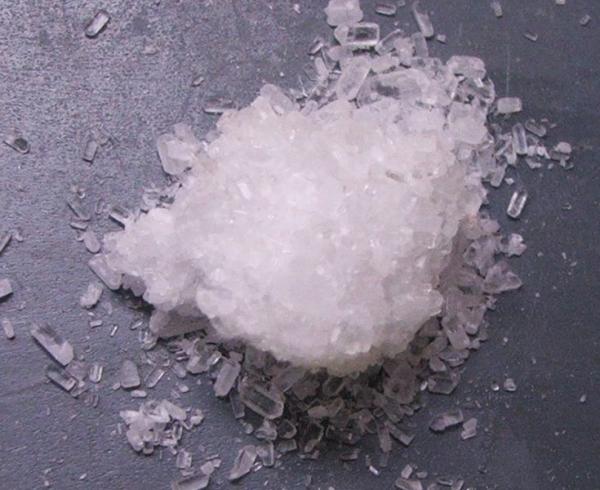There are not a lot of people who I would run 26.2 miles for.
However, the team of scientists and physicians at the Celiac Disease Center at Columbia University Medical Center are some of them. They are world leaders in the research and treatment of celiac disease and also happen to be my son's physicians. They have helped him become the healthy boy that he is today and there is no end to my gratitude for them.
So, when they set up a team to run this year's NYC marathon in November, I put on my sneakers. Embarking on this challenge has brought some new experiences. One of which is sore legs - really sore legs.
In looking for some advice, I turned to the first place I could think of - running websites. And, on those running websites I found one universal recommendation - soak sore muscles in a bath with Epsom salt - an old remedy that has been used since 1618, when it was accidently discovered to be a laxative for cows.
So, I ran (actually, more like hobbled) to the drug store, bought Epsom salt, soaked in a warm tub full of them and waited for my pain to dissipate. I think that the pain may have dulled some of my usual skepticism and critical thinking. While in the tub, I started to think... how is this Epsom salt working? What is the science behind it? Because, when I really started to think about it - it didn't make a lot of sense.
Epsom salt is not related to table salt, but it is still a salt called magnesium sulfate. The main claim behind soaking in Epsom salt baths is that the magnesium sulfate penetrates the skin and enters the blood to somehow cure sore muscles. But, when I go swimming, the chlorine doesn't enter my blood, right? Nor do the substances that are dissolved in other water solutions.
So, I dug around and it turns out that there is not a lot of sense in the power of Epsom salt.
The first hint I got came from the number of uses it has. Anytime one thing claims to heal sore muscles, act as a laxative, and help plants grow - there may be a catch. While some of the claims about Epsom salt may be real, I wanted to focus on whether or not it was going to help my muscles. I'll worry about growing plants after the marathon.
On the website www.seasalt.com, which sells Epsom salt, they state, "Studies have shown that magnesium and sulfate are both readily absorbed through the skin, making Epsom salt baths an easy and ideal way to enjoy the associated health benefits." They provide a reference for this claim as well - which is more than most websites do. So, I looked into it and the reference is a report (not peer reviewed) of a study done on 19 people who soaked in Epsom salt baths. At certain time points, their blood and urine were taken and magnesium sulfate levels were measured. They state, that "of 19 subjects, all except 3 showed a rise in magnesium concentrations in plasma, though this was small in some cases. The values before the first bath were, mean 104.68 ± 20.76 ppm/ml; after the first bath the mean was 114.08 ± 25.83 ppm/ml." They go on to state that the more bathing - the more magnesium (and sulfate) was found in the blood and urine. Ultimately, they draw the conclusion that "Bathing in Epsom salts is a safe and easy way to increase sulfate and magnesium levels in the body."
The only problem (well, one of many problems) is that the experiment did not have a control group. In order to even come close to their conclusion, 19 people would need to sit in a bath with no Epsom salt and have their magnesium and sulfate blood levels measured. Without those data, we can conclude that sitting in warm water raises magnesium levels of the blood.
This is just one website, but, I found this same paper cited as the reference on other websites as the evidence for magnesium and sulfate passing through the skin. (1) In addition, I could not find any evidence that magnesium or sulfate have the ability to cross through the skin and change blood levels. Our skin is a barrier designed to keep many things from entering our bodies - including large ions like magnesium and sulfate. It is not totally impermeable - many organic solvents can pass through the skin. But, it is highly unlikely and I could find no evidence to support the idea that large ions in water can get through the skin.
That is not to say that Epsom salt is useless or won't help with certain ailments. But, without those data, it is hard to explain how soaking in a bath of them could help sore muscles.
So, for this novice marathon runner, my skeptic nature is going to overrule the running websites and I'll leave the Epsom salt out of the tub for now. We'll see what happens after I run the marathon - I'll probably be willing to try anything at that point.
Notes:
(1) Another website citing this paper as evidence of magnesium passing through the skin is www.ancient-minerals.com/transdermal-magnesium/how-topical/#identifier_6...




